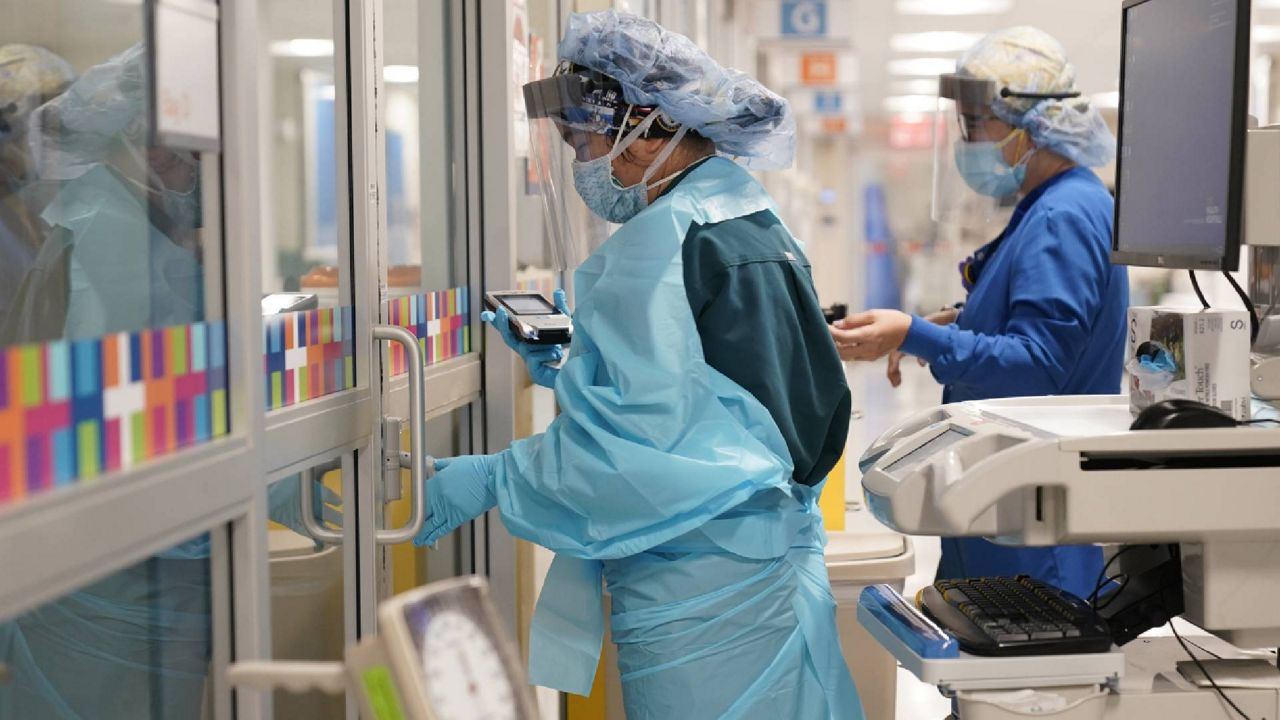More Americans are hospitalized with COVID-19 than ever before, with over 10,000 people admitted in the past week alone. Doctors across the country are sounding the alarm as hospitals prepare for another surge of coronavirus patients.
“I have yet to talk to any health care worker who's been working in this who is not exhausted,” Dr. Krutika Kuppalli, an assistant professor of infectious diseases at the Medical University of South Carolina, who also cares for people infected with COVID-19, told Spectrum News.
“The more patients we have to take care of, the more you ask of us. We are all exhausted.”
Kuppalli, who helped San Francisco’s health department prepare for a surge earlier in the pandemic, said hospitals still don’t have enough supplies and medicine in stock.
“I don’t think we have nearly enough of what we need. We are still very much rationing PPE,” she said. “The next few months are going to be bad.”
According to data from the COVID Tracking Project, more than 65,000 Americans were hospitalized with the virus as of Wednesday night, the highest number ever recorded. That’s up from about 47,000 at the beginning of November, just ten days earlier.
Things are most grim in the Midwest, where states like Illinois, Indiana, Iowa, Kansas, Michigan, Minnesota, Nebraska, North Dakota, Ohio, South Dakota and Wisconsin have all seen their cases rise by 15% or more in the last week. Many of those have also hit their highest number of hospitalizations yet.
In the past, a surge in COVID cases and hospitalizations was followed by a spike in deaths two to three weeks later.
Currently, the number of U.S. deaths is averaging around 1,200 per day, a slightly higher than average figure in recent weeks.
“We are at that point,” Dr. Kuppalli said. “And the only way that we can turn it around is if everybody takes action. People need to take personal responsibility.”
Health experts predict the numbers will increase even more as people celebrate Thanksgiving and other upcoming holidays. On Wednesday, the Centers for Disease Control and Prevention published new guidance on holiday celebrations, recommending people refrain from non-essential travel and mixing different households.
Dr. Kuppalli, who testified before lawmakers about holding an election during the pandemic, said those who make Thanksgiving plans need to ask themselves tough questions about the potential impact.
“Will I be okay being hospitalized in a place where maybe I'm visiting, where I might end up being hospitalized for weeks? Would I be okay with that? Or what if there's not a hospital bed for me?” she said.
This week, North Dakota hospitals reached capacity, as did many in Des Moines, Iowa and in parts of Wisconsin. Kuppalli said a surge in virus cases could also take away hospital beds from those who need them for other reasons, including critical surgeries.
On Wednesday, one of president-elect Biden’s advisers on COVID-18 floated the idea of a four to six-week nationwide lockdown to slow the spread.
“I think that we do probably need a shelter in place. You know, the problem is that if you look at what happened in the spring, we had 50 states doing 50 different things,” Kuppalli said. “That is not going to help anything. We need a plan for the whole country.”
Already, more than a dozen states have imposed new coronavirus restrictions in response to the spikes, many implementing a 10 p.m. curfew for restaurants and bars in an effort to prevent young people from gathering.



